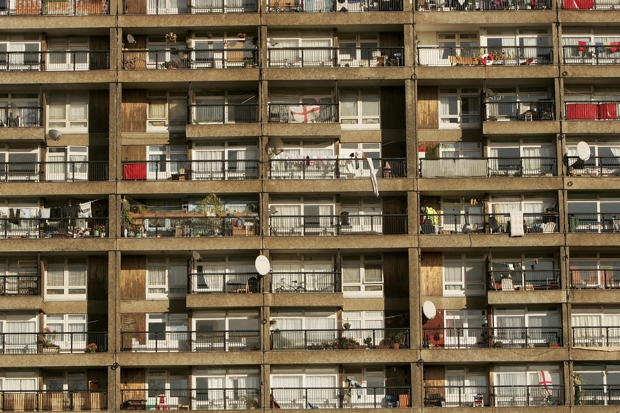The Tories don’t really rate the social housing sector: that much has been clear for a good long time. They fell out a bit over their 2010 reforms to tenancies that abolished the automatic right to a council house for life, and have been scrapping over welfare reforms ever since. In recent weeks, ministers had made it quite clear that given the housing sector protested so much about the impact of the last tranche of benefit cuts, and their dire warnings hadn’t come to fruition, they weren’t going to pay much attention to the opposition to this next round of cuts announced yesterday.
Perhaps, then, it wasn’t surprising that one of the measures that George Osborne announced was a 1 per cent annual reduction in social rents, which housing associations will foot the bill for. He said:
‘This will be a welcome cut in rent for those tenants who pay it and I’m confident that Housing Associations and other landlords in the social sector will be able to play their part and deliver the efficiency savings needed.’
It’s not clear why Osborne is confident of this, other than that he may be viewing the sector as a bit flabby and ripe for reform and efficiencies. Certainly coverage of high chief executive pay at many housing associations does not help their case when the organisations complain about government policies. Ministers have turned round to social landlords in meetings over the past few months and scolded them for their cry wolf stance, but also remark privately that the sector has been too lazy for too long.
But this conflict doesn’t come without risks. The first is that the Office for Budget Responsibility warns that ‘the Government’s decision to impose 1 per cent annual rent reductions in the social rented sector for four years from April 2016 will directly reduce social landlords’ rental income, and therefore their financing for, and returns to, investing in new housebuilding’. It therefore says that 14,000 fewer ‘affordable’ homes will be built.
An even bigger risk is also pinpointed in the OBR document:
‘The level of PSND can be affected by classification decisions that move institutions across the boundary between private and public sectors in the National Accounts. One classification uncertainty that may be relevant to future forecasts relates to housing associations. At present, these are classified in the private sector, so their income, spending and debt do not feature in our forecast. But there is a risk that Government policies – including the social rent measure in this Budget and the Right-to-Buy proposals that are not yet firm enough to be included in this forecast – could prompt the ONS to reconsider this classification. If housing associations were to be classified as part of the public sector, their approximately £60 billion of debt would be added to PSND while the social rent reduction policy announced in this Budget would increase rather than reduce PSNB because the full amount of the rent reduction would then reduce public sector income, and outweigh the housing benefit and other expenditure savings.’
So this Budget could have a £60 billion price tag attached to it, which sounds a tad expensive, even if housing associations have failed to make their case to Tory ministers.







Comments